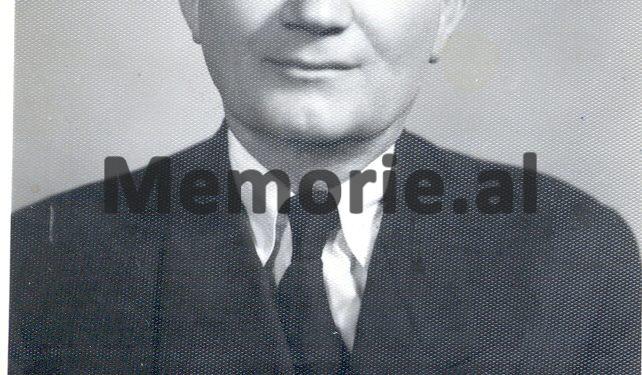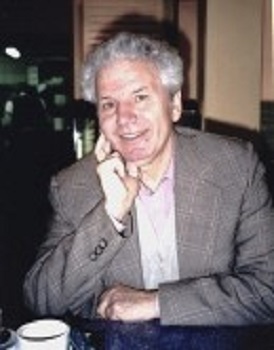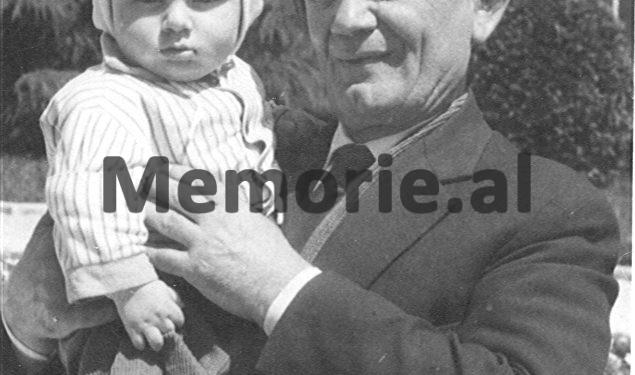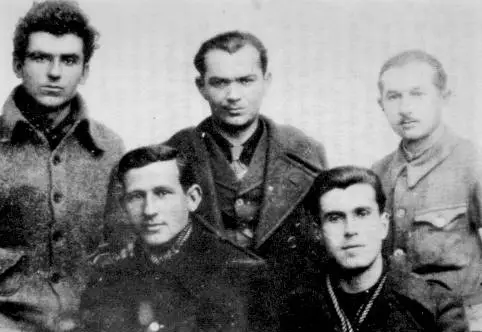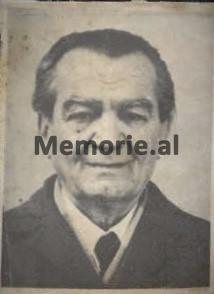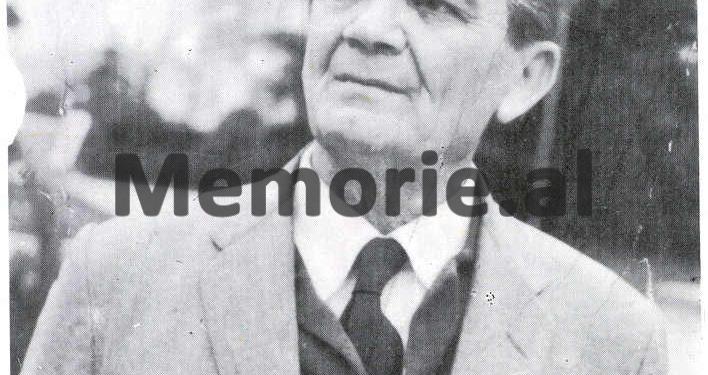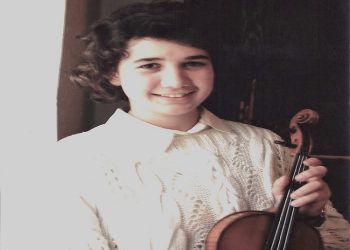“HOW I KNEW SKËNDER LUARASI”
Memorie.al / It is an astonishing truth, and one that brings pride, about some of our great patriots: they not only proposed grand, mobilizing ideas for the entire nation, but they did so at a surprisingly tender age. Let’s look at Faik Konica, Fan Noli, Mid’hat Frashëri, and others. Skënder Luarasi also followed this path, surprising the reader as early as 17 years old with the writing “The Heroic Death of Paros,” which he concludes with the words of the martyr who dies from the knives of anti-Albanian hands: “I consider it an honor to die for Albania! I am Albanian and I die for the nation”; or with the article, when he was 19, “Flag Day,” which he concludes with words as true as they are prophetic: “But no matter how good, how beautiful, and how pleasant this flag may be, its beauty is spoiled, it withers, it fades, if we are not like the flag.
Let us know that we make the flag, and not the flag us. If we are brave, loyal, and just, free, honest, so too will be our flag, the symbol of a brave, loyal, just, free, honest people. If we are slaves and traitors, so too will be the flag, the symbol of slaves and traitors…!”
And I had the great fortune to have this rare apostle of Albanianism as my professor of Western Literature at the University of Tirana. We knew he was a professor of English language, but we did not know that he knew German just as well, if not better. Many of us knew that he had made our own Migjeni known. We also knew that he had discovered a talent in Qemal Stafa’s famous essay: “The old is collapsing, times are changing, a new life is blossoming from the ruins.”
But we didn’t know that the “curse of the Albanian language” continued to pursue Luarasi as it had pursued his father. In fact, based on his name, we assumed he was Muslim. Much later I would learn that Petro’s son, surprisingly, did not go to church, but to the tekke (Bektashi lodge) of Qesarakë. And that curse, which was known in the time of the National Renaissance figures and whose origin is now being sniffed out, was not well understood or its roots grasped during the time Skënder Luarasi lived and created.
Although he had dedicated his heart and pen to the nation, and although it was said that days had come that would exalt the nation, he was chastised from time to time, and often severely. In these circumstances, he began to look around to discover who was launching those thunderbolts at him. To his surprise, he found that there were some non-Albanians there who were nonetheless beating their chests as such.
Observing that wicked brood who knew how to adapt so skillfully to the created circumstances, he was disgusted, and being the son of Petro Nini Luarasi, inheriting his courage, and being imbued with a democratic spirit in America and Austria, he, whenever he felt it his duty not to remain silent, despite knowing it, never wanted to follow the advice of Polonius to his son, Laertes, in the play “Hamlet”: “Give thy thoughts no tongue.”
Thus, he began to raise his voice everywhere against them with data that would shock you and often make you disbelieve. He did such a thing with us students too, speaking sometimes almost openly and sometimes with allegories or parables about people we knew and honored as national figures. As one of his ardent sympathizers, and as a young man who thought he knew something about the people he was rising against, I once dared to say to him:
“Professor, you have one great virtue and one great fault: You know how to portray your friends in such strong colors that anyone who doesn’t know them says or thinks: ‘Why, these are the real heroes and distinguished figures of our nation, and not some scarecrows we are shown.’ Whereas you know how to portray your enemies in such dark colors that anyone who doesn’t know them says or thinks: ‘Where’s the rope, why, these people should be hanged and not honored as they are.'”
Luarasi almost impulsively rushed at me: “Why, my friend, I don’t have friends and enemies of Skënder Luarasi. My friends and my enemies are the friends and enemies of the Albanian nation.” To confess to you after all this time, given my knowledge and background then, these words sounded like arrogance.
And, as Shakespeare tells us about Julius Caesar: “The evil that men do lives after them; / The good is oft interrèd with their bones.” Just as I thought then, so did, and why not, still do, other people who either did not know his work or deliberately found it convenient to despise him and present him as an ordinary quarrelsome man who swore high and low.
Thus, they better hid their wickedness or their incompetence compared to Skënder Luarasi, who was one of the purest figures and at the same time had such a great baggage of knowledge and an astonishing ability to tell stories, so much so that Eqrem Çabej would say: “The only man who can ‘eat up your time’ (make you lose track of time), and you don’t mind!”
In truth, he was very simple in character. We never heard from his mouth that he had studied here and there, that he knew this or that language, that he had fought in the international brigades against Franco’s dictatorship in Spain, that he had written this or that work, that he had done this or that translation.
But unfortunately, the wise saying doesn’t always apply to us: “Don’t look at the coat, but the work.” Studying Luarasi’s entire body of work, one is filled with admiration for this man of the pen, not only because it is large and diverse, but above all because it is important for the nation.
He endured years of work as a teacher, later the teaching load like any other university professor, and at the same time left behind a rich body of work: he made us intimately familiar with the life and work of Migjeni and the Old Man of Vlora, Ismail Qemali; our students heard the name of Isa Boletini for the first time in university halls from Skënder Luarasi, who soon published a dignified work on his life and work.
The name of the Qiriazi sisters or their brother, Gjerasim Qiriazi. During class, while discussing periods, authors, and works of the Western world, he was the only professor who would stop suddenly and ask us: “Do you know what happened in Albania during this time?” Equally, if not more important, is the work of Professor Luarasi as a great translator. Seeing the country’s backward feudal state, he continued the work left half-finished by Noli in this field.
Like Noli, he had a great clarity of worldview regarding the translator’s mission. He was clear about what this nation needed most and most urgently, which is why he would choose not only authors like Shakespeare, Goethe, Schiller, Byron, Lessing, John Milton, Whitman, Longfellow, Kalidasa, etc., but he would translate their most majestic and most essential works for Albania and the Albanians.
Precisely for this, he would not translate the dazzling love poems from Heine, Goethe, and others, but he would first hand us the shocking masterpieces of Goethe and Schiller. He began this noble, tiring, and responsible work with a beautiful and popular work that suited Albania, with “Wilhelm Tell” which came from little Switzerland, with a great anti-feudal lesson, and at the same time with Schiller’s emancipating historical worldview for society.
He continued with masterpieces by this author, such as; “The Robbers,” “Intrigue and Love,” and “The Conspiracy of Fiesco”; he moved on to Lessing and translated his fundamental work “Emilia Galotti,” then Goethe’s “Götz von Berlichingen” and so on. He translated all these dramas perfectly, faithfully, with an agile and rich language that honors his pen and presents the authors in a dignified manner to the Albanian reader, who deeply felt the grandeur of the two German geniuses through these translations.
Only after these successful steps did he dare to take the giant leap, to tackle Goethe’s masterpiece, “Faust,” the universal work that few world translators have dared to approach. Our Noli had refused to translate it with the words; “for this, my life would not be enough for me to become familiar with German folklore.”
Luarasi undertook this step with the responsibility of a serious translator. He had completed his studies in Austria in literature, had sharpened his pen, had given proven evidence as a trained translator, as a connoisseur of two worlds, two cultures, and two civilizations, German and Albanian, and of the views of Luther, Schleiermacher, and many others, on the method of translation.
The Faust that Luarasi gifted us speaks Albanian, it shakes you and surprises you and takes you to the rich and unattainable Goethean table. Studying this work carefully in Albanian, the reader reaches the conclusion that it is difficult for anyone to visibly surpass it in the future if they undertake its translation. Even if it happens, this will not speak at all about Luarasi’s failure, if we consider that there are 35 translations of “Faust” in Russian and over 10 in Italian.
And defending himself before any critic who did not know that a work is evaluated generally, and not based on individual verses or words, he told us: “My good Lord! Well, I cannot translate with the rag-language of an ordinary reader!”
Skënder Luarasi never missed an opportunity to instill his democratic and anti-monarchic views in our souls as students. He told us that he had great reverence for John Milton, who, in the heated discussion that had opened at the time about whether or not the king should be executed, had famously answered those who said it would be a shame for England to execute a white-bearded king with the words:
“It is not a shame for England to cut off the head of a white-bearded king, but it is a shame that it has not cut it off yet.” “And when the Republic failed,” Luarasi told us, “And Milton was blinded by the great work in the service of the Republic, one day the son of the executed king found him on the road and tried to mock him with the words: – Who knows what sins you have committed that God has taken your eyes? Milton, who recognized him by his voice, replied immediately: – Who knows what sins your father committed, that God took his head.”
Skënder Luarasi had a strong patriotic pride. His many powerful articles in defense of this cause speak to this, including “Flag Day” on November 28, 1919, “The Chief Day of every Albanian Year” on November 28, 1928, “On the Population of Kosovo” on the same day, and especially the article against the book of an unknown Austrian named Friedrich Wallisch, “Albania, a New State,” and many others. Every gesture of this patriot speaks to this.
He recounted that once, during a heated discussion with Albanian boys studying in Austria, Eqrem Çabej felt offended by him and had challenged him to a duel. Seconds had been appointed, and everything was arranged for the duel to take place in Hungary, as it was not allowed in Austria.
On the day of the duel, the well-known Qemal Butka had also gone there, and he had chastised them more or less with these words: “What are you doing? Albania considers you its sons and hope, it has sent you with a thousand sacrifices to study and to become its arms and help its progress towards civilization and not to engage in such acts!”
The mere mention of Albania’s name was enough, and they not only did not duel but reconciled right there and only remembered the event for humor. Another time, the young Luarasi set off from Austria to fight against Zog. When he boarded the ship, a lady began to insult Zog and said to Luarasi:
“What kind of Anatolian King do you have?” Luarasi, who believed that only Albanians themselves had the right to insult and fight their King, but not foreigners, rushed at the lady with his temperament and began to defend the King with pathos. I believe it is a meaningful lesson for everyone on how to defend everything national, even to the point of fanaticism, against the contempt of foreigners. It is an example to be followed even by our politicians today, who don’t hold back from saying things about each other at the doors of Europe.
Luarasi also had a surprisingly sensitive heart. I remember his in-class comment on the moment when Macduff receives the bitter news of the murder of his two boys and wife by Macbeth. He would read that part to us, with tears streaming down his cheeks, without any hesitation in front of us. Then and several times later in conversations with him, contemplating his face full of expression and listening to the quivers and colors of his voice, I thought that in Luarasi we had gained a distinguished professor, but had also lost a rare actor.
Looking at his life and work as a whole, it emerges that he is first and foremost a great Albanian and one of the most distinguished translators. Meanwhile, several passionate translators of German literature have emerged among us, but Skënder Luarasi, along with others like Robert Shvarc, remains, as the folk song says: “Twenty-five knights, / The Vizier groom above them!” Memorie.al




